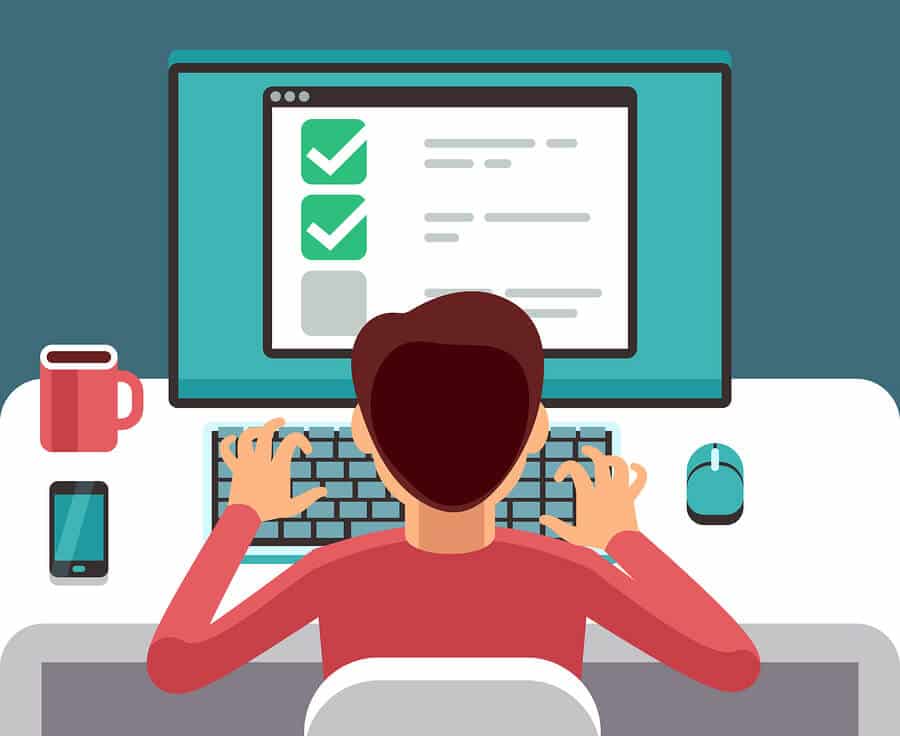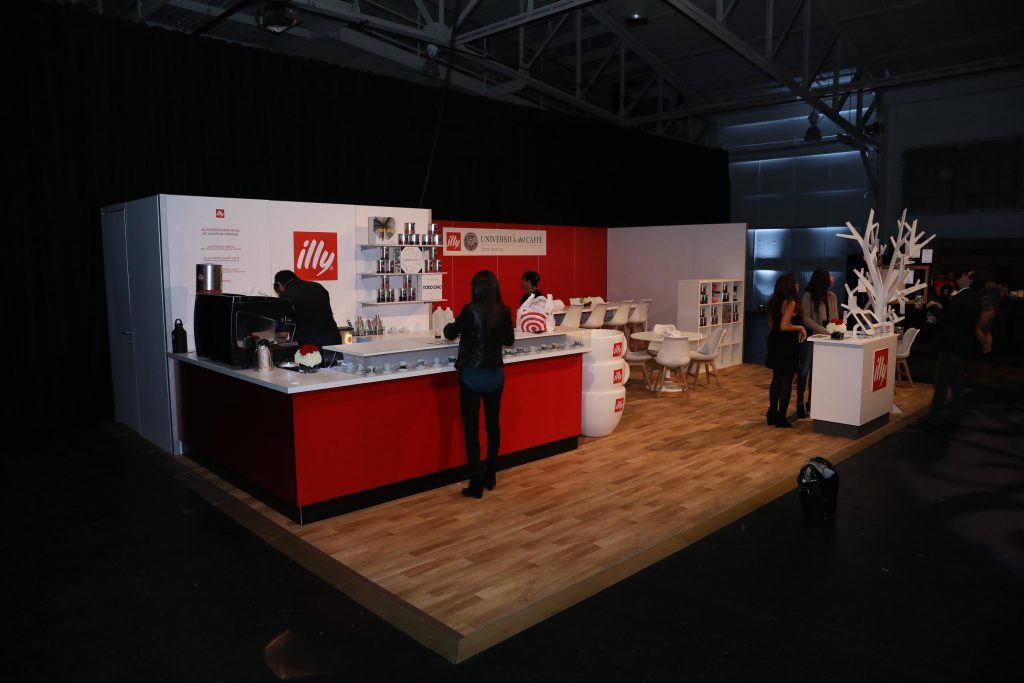Building a successful event involves getting into the minds of your target audience. Surveys are a time-tested way to find out what they’re thinking. A good survey can open a treasure trove of information, but a bad survey is a waste of everyone’s time. Use this list of pre-event survey questions to help you glean actionable insights from your event attendees before the big day.
Why Send Out a Pre-Event Survey?
There are several solid reasons to start asking for event feedback well before one starts. In the event planning stages, there’s a lot of useful info to be gained from potential attendees.
To put on a successful event, you need to understand your audience and know what they want. There’s one foolproof way to find out what your audience wants: Ask them. For instance, when devising event plans, you could assume you know how many people will show up or how many want to see a particular speaker or celebrity. You might be right—but you could also be wrong! Asking questions is a far better way of gauging interest than guesswork. This holds true for every aspect of your event.
Asking questions now can even help you plan events in the future. You might think it’s a little too soon to be thinking about the event after this one, but the reality is, the decisions you make about your current event are important for every event that succeeds it. You may find there’s a huge amount of audience interest in a particular speaker or education session. Maybe it’s too late to add extra sessions at this conference, but now you have a heads-up on what would be popular at the next one.
Finally, there’s the question of engagement. An engaged audience is one that goes beyond just show up. People participate more fully when they’re actively engaged. Asking questions shows your audience that you’re interested in what they think. That helps them feel more valued and more engaged with your brand and your event.
Key Types of Event Survey Questions
Survey questions come in three main categories. Each type of question is useful for generating particular information. When you’re drafting a pre-event survey, you need to know what information you’re looking for, as this determines the kinds of questions you ask.
The three categories of survey questions are:
- Binary – The simplest kinds of questions have yes/no answers, or they ask participants to mark off checkboxes to indicate their answers. Binary questions don’t generate detailed information, but they’re useful for getting basic information, such as demographics.
- Quantitative – These questions are number-driven, meaning they ask for quantifiable information; for example, multiple choice questions or questions where you ask an attendee to rate a specific attribute.
- Qualitative – These are open-ended questions that encourage participants to provide more detailed information. Qualitative questions almost always provide useful insights. The trick is getting people motivated to spend time answering them.
Note that because qualitative questions are the most time-consuming for people to answer, they’re usually the ones with the lowest response rate. If you’re sending out a survey, balance it by using mainly binary and quantitative questions, with a small number of qualitative ones.

How to Circulate Survey Questions
Apart from the questions themselves, one of the most important considerations is how to get them out to people. There are several ways to do this, and certain kinds of questions are best disseminated in particular ways. This means you may end up with several mini surveys rather than one large survey.
Some ways to disseminate conference survey questions include:
- As a poll on your website or on social media – This is best for binary or multi-choice quantitative questions. Note that not everyone will see these questions, and the incentive for answering is low.
- During the registration process – This method is best for any question you need every attendee to answer. Questions about special accommodations attendees may need are in this category.
- After registration, on a post-registration confirmation screen or on a survey platform – This works for any and all questions, excluding mandatory questions you include during registration.
If you decide to send surveys after registration, make it easy for people to respond. Use a simple template that’s easy to use and understand, with just a handful of questions. Try to limit the qualitative questions to just two or three. You’ll get a better response rate with a quick, simple survey rather than one that’s long and requires a lot of writing.
Pro Tip: If you send out a full survey, consider offering a small perk for people who respond, which they can obtain at your event. Some special swag or drink voucher are great ideas!
What Questions Should You Ask on a Survey Before Your Event?
1. How did you hear about this event? (Quantitative)
- A multiple-choice question with four to five options, including word-of-mouth as well as your major marketing channels
- Best used for trade shows, public events, and other events where your marketing efforts have spanned multiple channels
- Add to your registration form or include in a post-registration survey.
In terms of pre-event survey questions, this is one of the most important because it gives insight into which marketing channels are most effective. It also reveals which channels are under-performing. Along with other contextual information, this can help you determine if you need to change up your event marketing efforts.
2. Why did you choose this event? (Qualitative)
- Include as a multiple-choice question and/or an optional comment field.
- Best for large events where there’s a significant time delay between registration and attendance, like annual trade shows and conferences
- Add to a post-registration survey or purchase confirmation page.
Include options such as speakers, classes, sponsors, location, and others. Don’t forget things like recommendations and word of mouth too. Adding an optional comment field ensures that people can write in their own reasons if they have more to add.
3. Have you attended this event before? (Binary)
- Include as a yes/no question.
- May apply to corporate events as well as any non-corporate event that occurs on a periodic basis
- Include as an optional question on registration forms or in a post-registration survey.
This question helps you determine who your regulars are—those attendees who show up at every event. Loyal attendees are proof that your event is ticking the right boxes for your target demographic. The more repeat attendees you have, the better your event looks to sponsors and stakeholders.
4. What’s your preferred social media platform? (Quantitative)
- Multiple-choice question that allows the respondent to select as many options as apply
- Can apply to any corporate or non-corporate event
- Include on registration forms, on the post-purchase confirmation page, or in a post-registration survey.
It’s always useful to know which marketing channels get the most attention. The answer to this survey question can inform where your event marketing team should spend their time and dollars online. Whichever platforms you end up using, make sure to create event-specific hashtags to help people find you online.
5. Which speakers/classes/events are you most interested in? (Quantitative)
- Provide a list that allows respondents to choose up to 30% of the available options. Add a separate question for each category of events. Don’t force people to choose between speakers and classes, for instance, especially if you have a lot of both.
- Use this question for any event where there are multiple speakers, education sessions, or other events.
- There’s no need to wait until registration to ask this question: Once speakers and other events are finalized, you can start generating interest by posing the query on social media.
As you get more information about what people are most interested in, you can adjust your event accordingly. For instance, if you have a huge amount of attention for a particular speaker you may decide to shift their session to a larger space, add extra seating, or arrange for the session to be filmed.
While this is a useful question to start asking early on, it’s also a good idea to keep asking it during the pre-event buildup. You could include it on the purchase confirmation page or in a post-registration survey.
6. Do you have special needs, restrictions, or requirements of which we should be aware? (Qualitative)
- Mandatory yes/no question with multiple-choice options, plus a comment box so respondents can elaborate if necessary
- Essential for most events, including corporate, industry, and public events
- Include this as a question during event registration, so every attendee answers it. The sooner you get information about what accommodations are needed, the better.
This question helps ensure your event can be attended by anyone and that everyone enjoys their event experience, so it’s important to ask well in advance. Make sure your multi-choice options cover as many aspects as possible, including mobility, hearing/sight aid, and others. Adding a comment box allows attendees to add options that may not have been included.
7. Do you have dietary restrictions of which we should be aware? (Qualitative)
- Include as a mandatory multiple-choice question with a comment box.
- Essential for any event where food (even snacks or hors d’oeuvres) is served to attendees
- Include this question as part of the registration process.
Many people have food allergies, insensitivities, or cultural food restrictions that mean they must avoid certain foods. If you’re serving food, this question helps you plan for food choices that everyone can enjoy. At the event, make sure allergen and other essential food information (e.g. kosher or halal food) is clearly displayed.
8. Do you plan to stay at a preferred hotel? (Binary)
- Mandatory yes/no question
- Include this question for events to which people travel, such as national and international trade shows or conferences, or if your event is partnering with local hotels.
- Make this question part of the registration process.
This question helps the hotels with which you’re partnering plan their booking schedules. It’s also useful as a reminder to registrants that they have the option to choose a partner hotel. If there are perks associated with the choice, display that information prominently.
9. Is any event information confusing or hard to find? (Qualitative)
- Optional yes/no question, with a comment box
- Appropriate for any event, especially new events, or any event that has undergone a substantial change since the last one
- Include at the end of the registration process, e.g. on the post-registration confirmation page.
The information you provide on your website should be clear and easy to find. Asking this question helps you understand if any improvements are needed.

Ask the Right Questions to Get the Information You Need
The success of your event depends on knowing as much as possible about those who choose to attend. This is true at all stages of the process, including before the event starts! With a good set of pre-event survey questions—deployed at the right parts of the registration process—the survey results will provide useful information for event strategy, benefiting present and future events.









